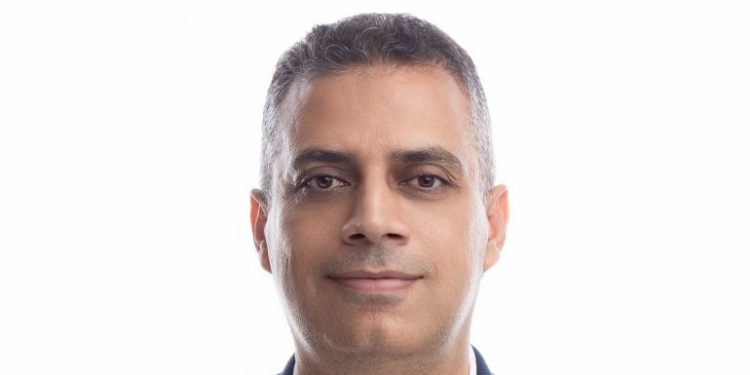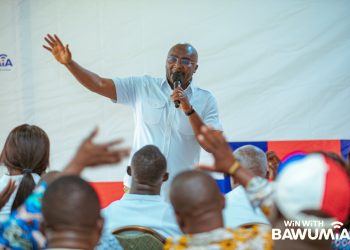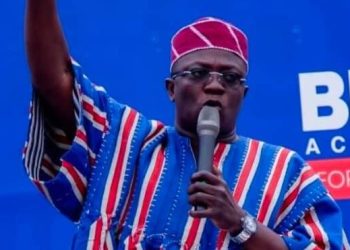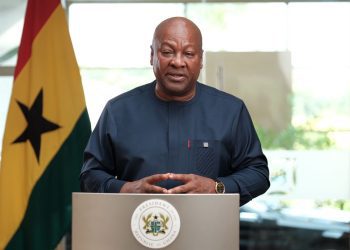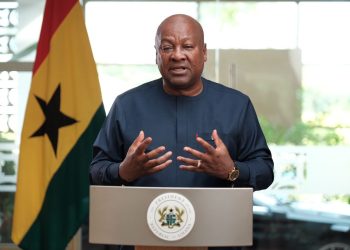Africa’s growing artificial intelligence (AI) divide poses one of the continent’s greatest technological challenges—and addressing it will require massive investment in energy and data infrastructure.
While many African nations have made great strides in expanding connectivity, the continent still faces a fundamental hurdle—powering the data centres and computing infrastructure required for AI innovation.
Chief Digital Officer of MTN Ghana Ibrahim Misto made the observation in his reflections at the end of the three-day Africa Tech Festival held in Cape Town, South Africa, from November 11-13, 2025.
He therefore called for urgent collaboration between governments, private operators, and innovators to ensure that Africa not only adopts AI but also becomes a global leader in its development and deployment.
“When we talk about AI, the main enablers are energy and compute capacity,” Misto said.
“As a continent, we must develop smart energy policies to ensure affordable and reliable power. We also need to invest in AI-ready data centres that provide the computing power required for innovation.”
The AI divide and the cost of intelligence
Misto observed that conversations at this year’s conference signalled a shift in Africa’s digital transformation agenda—from bridging the “digital divide” to confronting the “AI divide.”
Across the continent, countries are racing to build the infrastructure and expertise needed to participate in the AI economy.
However, he cautioned that without adequate energy systems, Africa risks being left behind.
“If we define infrastructure for the AI era, it’s not only about data centres—it’s also about energy. The ‘cost of intelligence’ will depend on the cost of energy,” he explained.
“MTN can build data centres, but governments must ensure affordable, reliable energy.”
Misto said this calls for strong public-private partnerships where the government focuses on energy security while the private sector drives digital infrastructure investment.
Collaboration at the heart of Africa’s digital future
Reflecting on the three-day festival—which brought together more than 15,000 global participants, 300 exhibitors, and 450 speakers—Misto noted that the spirit of collaboration was the most powerful theme.
“Nobody can do this alone; we all have to work together,” he said. “
Conferences like this allow us to engage, exchange ideas, and explore best practices from other markets.”
He praised the participation of Ghana’s Minister for Communications and Digitalisation, whose presentation highlighted Ghana’s progress in digital transformation and reaffirmed the government’s commitment to expanding the country’s digital economy.
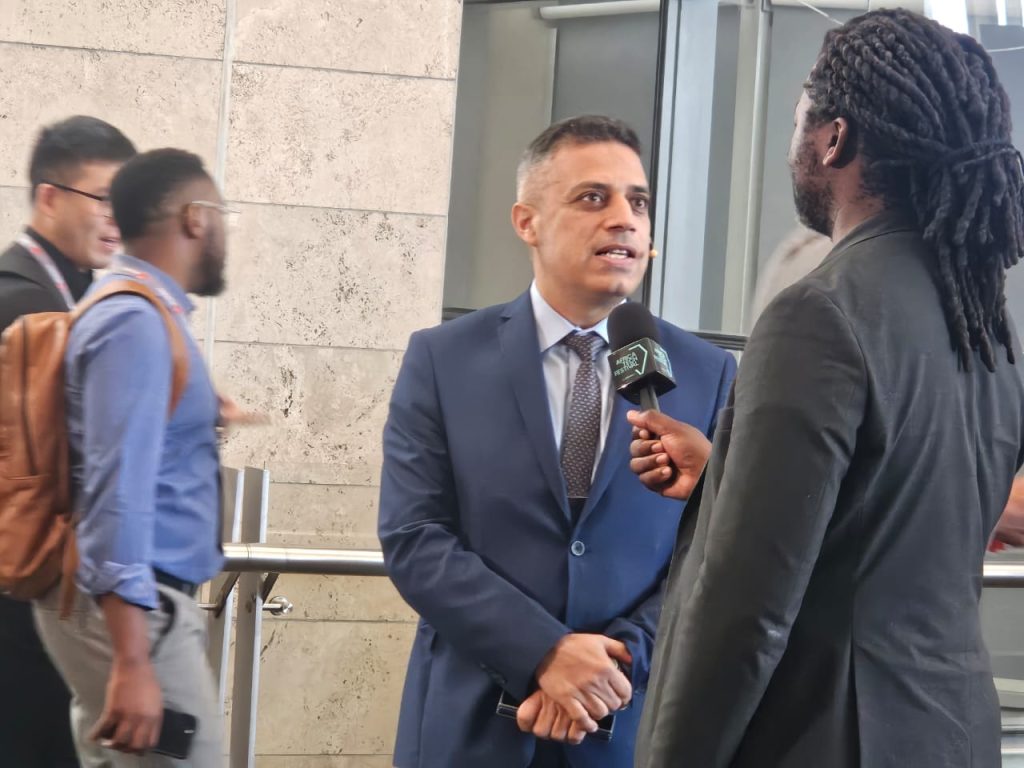
“It was very exciting to see all the players from the private and public sectors, policymakers, and innovators come together to build the future of the digital economy in Africa,” Misto added.
MTN’s role: From telco to Techco
Misto also spoke about MTN Ghana’s ongoing transformation from a traditional telecom operator to a full-fledged technology company—a transition he said requires not just new tools but a new mindset.
“Technology is important, but just as critical is mindset,” he noted.
“Transitioning from a telco to a techco requires both technological advancement and a cultural shift. Conferences like this help us evolve our technologies, skills, and mindsets to be ready for the future.”
He said MTN’s InfraCo initiative—a platform strategy focused on building future-proof infrastructure—positions the company to play a central role in enabling Africa’s AI ecosystem.
Ghana’s progress and human capital development
According to Misto, Ghana is performing well in terms of technology adoption and infrastructure development, but greater emphasis must now be placed on human capital.
He cited MTN’s Technology Innovation Hub and the One Million Coders programme as key initiatives designed to build skills in AI, digital innovation, and cybersecurity.
“We’re not just importing technology—we’re nurturing local innovation,” he said.
“We want the next unicorn to come from Ghana, just as mobile money became a groundbreaking African innovation.”
He added that MTN remains open to supporting startups and emerging entrepreneurs.
“I’m particularly looking forward to attending the startup competition here in Cape Town, featuring the top ten African startups.
“MTN is very open to supporting the startup ecosystem and helping new unicorns emerge,” he said.
Tackling fibre cuts and policy reform
Misto welcomed the bold statements made by Samuel Nartey George, Minister of Communications, Digital Technology, and Innovation, regarding the reduction of fibre cuts—a long-standing problem that disrupts connectivity and increases operational costs.
He also called for inclusive policymaking and regulatory reviews in Ghana’s telecom sector, urging the government to take time to gather stakeholder input before finalising reforms.
“We must co-create policies that make Ghana the true digital gateway to Africa,” Misto said.
MTN’s vision for Ghana’s digital economy
Misto outlined two major pillars driving MTN’s digital vision for Ghana.
The first is enriching the home experience beyond connectivity.
“MTN aims to be more than an internet provider—we want to deliver a full digital lifestyle, offering services from home security to entertainment and gaming,” he said.
“Our goal is to connect as many homes as possible and simplify their digital experiences.”
The second is leveraging AI for all. “We want to give every individual and business access to AI tools that enhance productivity and efficiency,” he said.
“By providing local AI use cases, we can help citizens and SMEs become more productive, contributing to a stronger digital economy.”
Public-private partnerships
Citing the World Bank’s position that private sector investment is vital for infrastructure development in developing countries, Misto said Ghana’s path to AI leadership depends on coordinated efforts between government and industry.
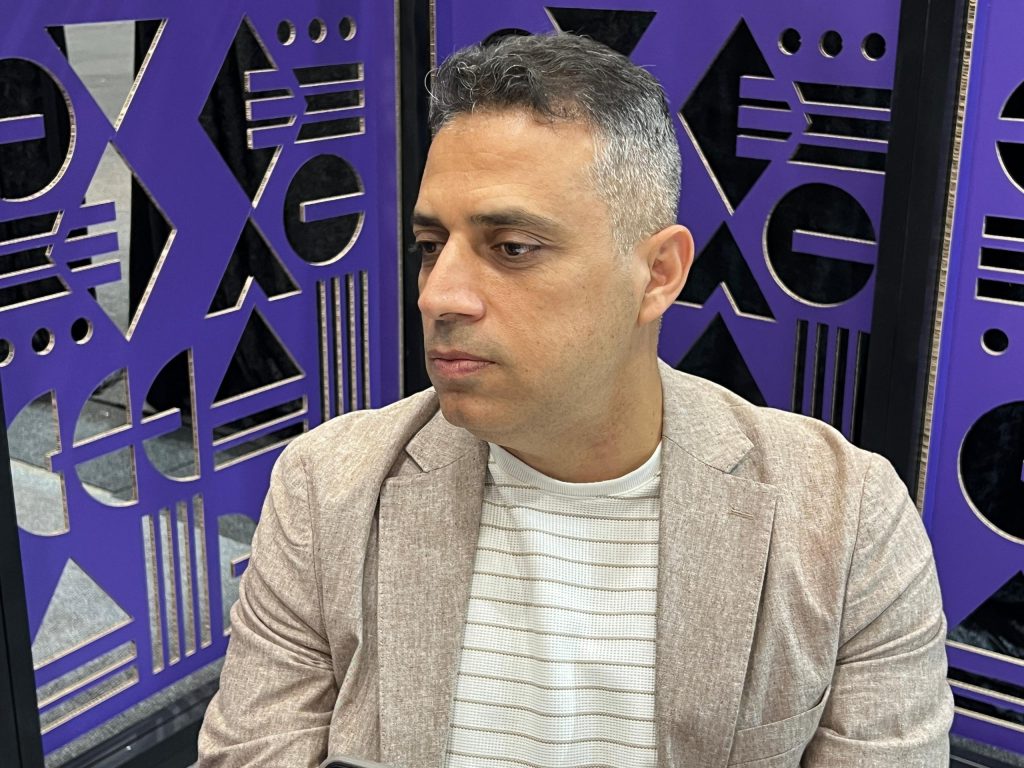
“This is the new model—government provides the enabling environment and energy; the private sector builds and operates the infrastructure,” he explained.
“Together, we can unlock the full potential of AI and other future technologies.”
The 3 pillars of Africa’s digital future
Misto identified infrastructure, energy, and talent as the three critical pillars that will determine how effectively Africa can harness the power of AI and emerging technologies to drive sustainable growth.
“Ultimately, infrastructure, energy, and talent will decide how fast we can grow,” he said.
“If we get these right, Africa will not just catch up—we will lead.”
The 28th edition of Africa Tech Festival—held from November 11 to 13, 2025, at the Cape Town International Convention Centre—remains the continent’s premier gathering for technology and innovation.
This year’s theme, “Responsible and Inclusive Growth,” underscored how connectivity, AI, entrepreneurship, and policy are reshaping Africa’s digital transformation.
CREDIT: MTN Ghana sponsored our Editor, Elvis Darko, to the Africa Tech Festival.

